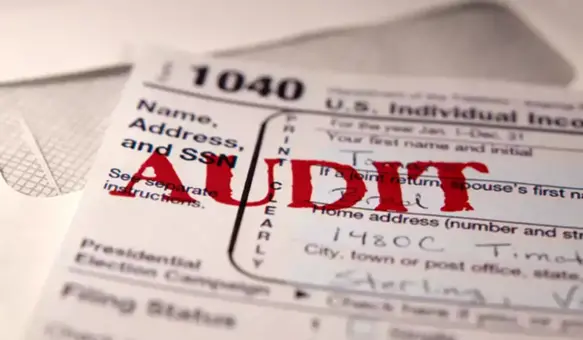Do churches pay taxes? Exemptions, property taxes, and filing

In the United States, the phrase "do churches pay taxes?" often sparks curiosity, debate, and sometimes even confusion.
While the short answer is generally "no," the topic is far more complex than it appears.
From federal income tax exemptions to property taxes and unrelated business income tax (UBIT), the tax obligations – or lack thereof – of churches require a nuanced understanding.
In this article, we'll explore the intricacies of church tax exemptions, highlight when churches might actually owe taxes, and clarify common misconceptions surrounding this topic.
What does it mean for churches to be tax-exempt?
To answer the question "do churches pay taxes?" we must first understand what "tax-exempt" actually means.
Most churches qualify as 501(c)(3) nonprofits under federal tax law. A key nuance: churches usually don’t have to file Form 1023 to get this status, even though many still apply for an IRS determination letter to make things easier with banks, donors, or grantmakers.
This classification means they do not have to pay federal income taxes on donations, gifts, or other income related to their religious mission.
Church tax breaks mainly come from tax laws passed by Congress and states. The Constitution matters in the background, and courts have said these kinds of exemptions can be legal. For example, the Supreme Court upheld a property-tax exemption for religious organizations in Walz v. Tax Commission (1970).
However, as with many things in tax law, the devil is in the details.
When do churches have to pay taxes?
"It's a common misconception that federal tax exemption means exemption from all taxes." – Steve King
Many people assume ‘tax-exempt’ means ‘no taxes at all,’ but that isn’t true. Churches can still face taxes in specific situations (like unrelated business income, some property use, or payroll rules).
Let’s break down the different scenarios:
1. Unrelated business income tax (UBIT)
One of the most significant exceptions to a church's tax-exempt status involves unrelated business income.
If a church engages in activities that are not substantially related to its religious mission – such as operating a coffee shop or renting out property for non-religious events – the income generated may be subject to UBIT.
Churches may owe tax on unrelated business income—money from a business that’s run regularly and isn’t tied to the church’s religious work. But rent from real estate is often not treated as unrelated business income, unless special exceptions apply (like the church provides hotel-style services, or the property is debt-financed).
If a church has $1,000 or more in gross income from an unrelated business activity, it generally must file Form 990-T (and it may owe tax on that income).
Note! The key factor is whether the activity is regularly carried out and unrelated to the church’s primary purpose.
2. Property taxes
Churches are typically exempt from property taxes on buildings and land used for religious purposes, but this exemption is not absolute.
Some states and local jurisdictions may impose property taxes on properties owned by churches if they are not used exclusively for religious activities.
For instance, if a church owns a rental property or operates a commercial business, that property may be subject to local property taxes.
Property-tax rules are set by states and local governments. Many places exempt church property used for worship, but the details vary. In some areas, churches may need to apply and show the property is used mainly for religious purposes to get (or keep) the exemption.
Pro tip. Churches should always check with local authorities to understand the specific rules that apply in their area.
3. Sales taxes
Sales-tax rules also depend on the state. Where exemptions exist, churches often need to provide an exemption certificate, and the exemption may cover only certain purchases used for church activities.
However, if a church engages in activities unrelated to its mission – such as selling merchandise like T-shirts or books – they may be required to collect and remit sales taxes on those transactions.
4. Payroll/employment taxes
Even if a church doesn’t pay federal income tax, it may still have payroll tax responsibilities for employees. There are also special rules for ministers, so churches should follow IRS guidance when setting up pay and withholding.
Legal considerations and potential pitfalls
Understanding the tax-exempt status of churches is not just about knowing when taxes apply; it’s also about navigating the legal landscape.
In general, 501(c)(3) groups (including churches) can’t support or oppose political candidates as an organization. This is a common reason tax-exempt groups get into trouble, so churches should treat elections as a high-risk area and get advice before doing anything that could look like an endorsement.
For example, churches are prohibited from endorsing political candidates or engaging in substantial lobbying. Violations can lead to the revocation of their tax-exempt status, resulting in significant financial and legal consequences.
Furthermore, misuse of tax-exempt status – such as generating excessive income from unrelated business activities – can lead to audits, fines, and potential loss of exemption.
Note! In extreme cases, churches may face legal actions from local governments or taxpayers challenging their exemption.
The broader impact of church tax exemptions
"The notion that taxing churches would raise substantial federal revenue is wildly inaccurate." – Jared Walczak
Some analysts argue that taxing churches wouldn’t automatically produce huge new federal revenue, because the numbers are often smaller than people expect and the rules would still be complicated.
Supporters of the exemption argue that churches provide valuable social services, such as food pantries, homeless shelters, and educational programs, that benefit the broader community.
Taxing these organizations, they argue, would reduce their ability to provide these services, ultimately harming the communities they serve.
On the other hand, critics argue that the exemption creates an unfair burden on other taxpayers and that some churches, particularly wealthy megachurches, should contribute their fair share.
They point out that in some cities, tax-exempt properties, including churches, make up a significant portion of the tax base, leading to higher taxes for everyone else.
Free call with our team
Join 50,000+ happy taxpayers
Bottom line
So, do churches pay taxes?
The answer is mostly no, but with some important exceptions. Tax-exempt status does not eliminate payroll obligations. Churches are generally required to withhold and pay employment taxes for employees (with special rules for ministers and certain elections available to churches).
Whether through unrelated business income, property taxes on non-religious properties, or sales taxes on commercial activities, there are situations where churches may be required to pay taxes.
For church leaders, understanding these nuances is crucial. By staying informed and compliant with tax laws, churches can focus on their mission while avoiding potential legal and financial pitfalls.
As always, consulting with a tax professional who specializes in nonprofit organizations is the best way to ensure your church remains in good standing with both the IRS and local authorities.



